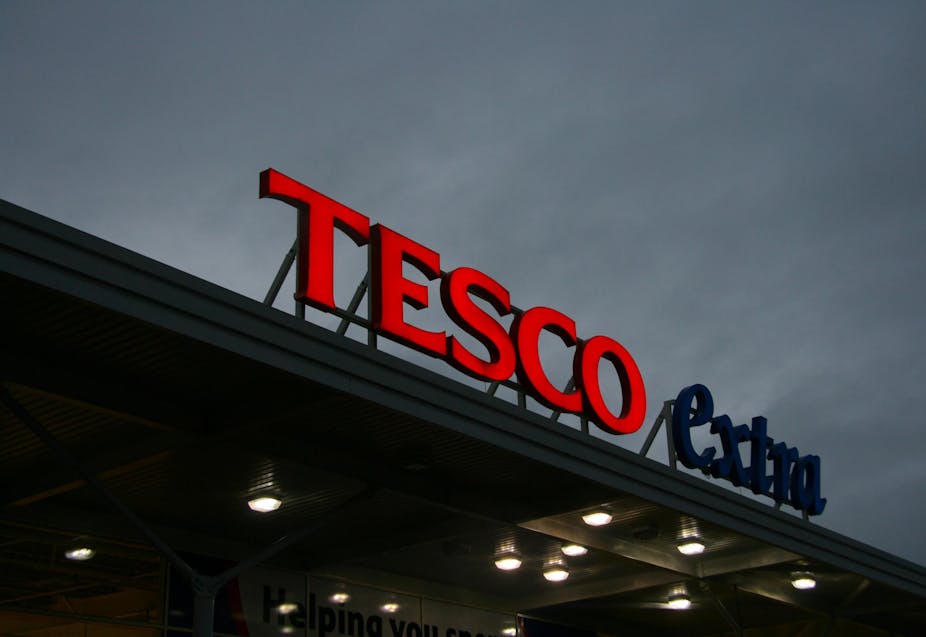The Serious Fraud Office is conducting a formal criminal investigation into accounting practices at Tesco. In contrast, the Financial Reporting Council, whose primary remit is to regulate accounting, is still in the process of considering an investigation into the supermarket giant. Tesco has said that it is co-operating with the inquiry.
The SFO investigation comes amid discovery of a £263m black hole, reported by Deloitte, in Tesco’s profits. Essentially it over-reported by this amount, primarily because of sales that were taken in advance, before they were actually made or the related costs had been booked.
This is a very simple accounting device that any good auditor should be able to spot. These agreements are common in the supermarket trade, involving large sums of money. But prudence would dictate that profits are taken when earned and not in advance. And it comes at a time when wider accounting practices have been put under the public spotlight.
Climate change
At a major speech given at the LSE recently, the deputy governor of the Bank of England, Minouche Shafik, spoke about the need to rebuild trust in financial markets and put an end to market manipulation. This comes in the wake of numerous scandals that affected the City of London, including LIBOR and foreign exchange manipulation without anyone batting an eyelid.
It seems what is most significant now is that the political mood to challenge this has changed. There is a new determination to get rid of the “bad apples”, and to show that the City is tough on fraud and manipulation. No longer is it economically viable for Britain to sweep these problems under the carpet, and ensuring accounts are trustworthy is fundamental to this. The public are rightly angry at the ways in which they have been exploited by so-called experts, including bankers, for so many years, and the need to bail out financial institutions with public funds.
In the past, the City was supported and even favoured by governments. Now, there is a feeling that its reputation has been severely tarnished – and prompt, decisive action is necessary to ensure the strength of London as a global financial centre.
Better signals
The public has had problems with greed, ethics and white-collar crime in the City for too long – and the modern corporation has been found to be morally deficient. The issue is rarely addressed by business schools directly and many academics around the globe have long been complicit in the fraud and manipulation of society.
This is unsustainable. Earnings management is wrong and should be prohibited. Auditors should be genuinely independent and play a critical role in policing giant corporations. Performance and rewards dependent on accounting numbers that incentivise bad behaviour and pay out bonuses for doing so must go. In short, corporate shortcomings should no longer be tolerated by society.
It is this climate that Tesco now finds itself in. Although there is no evidence that Tesco has acted in any way improperly, the announcement of the SFO investigation sends a good signal for business practice. If any wrongdoing has happened, I hope that this investigation will uncover it and punish the wrongdoers.

